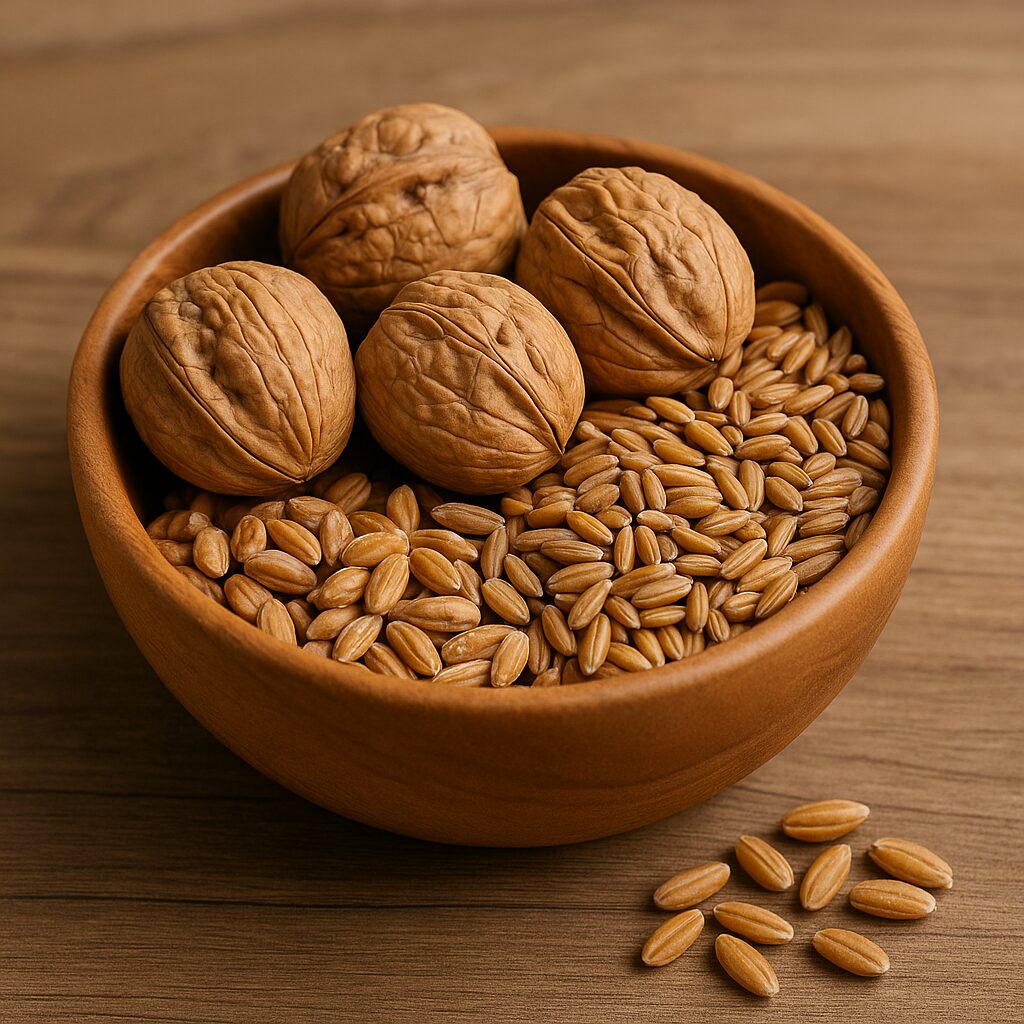Manganese is an essential trace mineral required by the body in very small amounts, yet it may play an important role in overall wellness. It contributes to bone formation, antioxidant defense, energy metabolism, and nervous system balance. Although deficiency is rare, maintaining adequate intake could support long-term health. This article summarizes the potential benefits of manganese and practical dietary sources.

1. Supporting Bone Health
Manganese may work together with calcium, vitamin D, and magnesium to help maintain strong bones and bone density. Adequate intake could be especially useful for children in growth stages and postmenopausal women at risk of bone loss.
2. Antioxidant Role
Manganese is a component of the antioxidant enzyme superoxide dismutase (SOD), which may help neutralize free radicals. This activity could reduce oxidative stress and support healthy aging by protecting cells from potential damage.
3. Energy Metabolism
Manganese may assist in the metabolism of carbohydrates, proteins, and fats. By supporting enzymatic reactions, it could contribute to efficient nutrient utilization and help maintain daily energy levels.
4. Nervous System Support
Manganese is linked to neurotransmitter synthesis and may support concentration, memory, and mood balance. Adequate intake could help maintain normal brain and nervous system function.
5. Wound Healing and Skin Support
Because of its role in collagen production, manganese may aid in tissue repair and wound healing. It could also support skin resilience and overall recovery processes.
6. Reproductive Health
Manganese may play a role in hormone activity, potentially supporting reproductive health. While more research is needed, balanced intake may help maintain normal hormonal function.
7. Deficiency and Excess
Manganese deficiency is uncommon but could be associated with poor bone growth, fatigue, or blood sugar imbalance. On the other hand, excessive supplementation may cause neurological issues or discomfort. Therefore, moderation is generally advised.
8. Food Sources and Intake
Whole grains, nuts, legumes, leafy vegetables, and tea are good sources of manganese. Adults usually require about 2–3 mg per day, which can often be met through a balanced diet without the need for supplements.
🌿
Manganese may be small in amount but significant in function, supporting bone health, metabolism, antioxidant balance, and nervous system function. Consistent intake through a varied diet could help maintain sufficient levels safely.
References and Further Reading
World Health Organization (WHO) – Trace Minerals Overview
National Institutes of Health (NIH) – Manganese Fact Sheet
Food and Agriculture Organization (FAO) – Essential Minerals in Nutrition
※ This article is for general informational purposes only. Individual needs may vary, and professional advice is recommended before considering supplements.